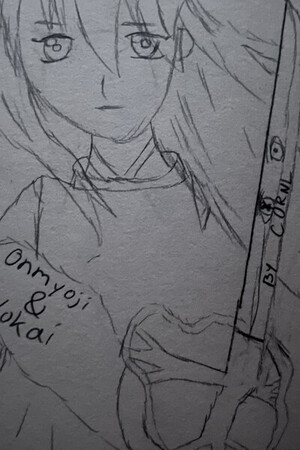Chapter 5:
Vol 2. Loner's monologue
Daily Life of a loner
Human beings have an inherent appreciation for what they perceive as beauty. This admiration often extends to other individuals deemed aesthetically pleasing. However, I argue that true beauty does not exist. People may appear beautiful, but this is merely a facade. Every individual is driven by personal desires, making "true beauty" an illusion. I include myself in this assessment. Since every action stems from self-interest, people are ultimately governed by motivations that render them less than ideal. The distinction in perceiving others as beautiful depends entirely on awareness of these underlying desires. If a person recognizes the self-serving nature of human actions, they cease to see others as beautiful. Conversely, ignorance of this reality allows one to find beauty even in that which is inherently flawed.
From my perspective, all human actions are dictated by intrinsic desires—love, hatred, vengeance, or any other impulse. These forces shape who we are. Acts of kindness, for example, are not purely altruistic but often arise from an aversion to causing distress in others. On the other hand, rudeness can stem from a desire to assert dominance or avoid exploitation. If someone speaks to you, they are invested in doing so. It is either out of dislike or excessive attachment if they ignore you. Every action contributes to an implicit framework by which we categorize individuals as either admirable or repugnant. This is how our cognition evaluates and assigns aesthetic or moral value to others.
As a self-identified loner, I, Taruo Taichi, was keenly aware that Himari’s decision to eat lunch with me and give me her number was a calculated act. She was widely considered beautiful, which elicited envy from other girls and admiration from boys. She understood this social dynamic, making her, in a way, a loner as well. Recognizing my isolation, she saw an opportunity for companionship and sought to befriend me. This was the true motivation behind her actions. Other girls, noticing her interest in me, attempted to obstruct her efforts and isolate her further.
Life is defined by the decisions we make. Even inaction is a form of choice. These decisions determine the trajectory of one’s existence. In my case, embracing solitude was a conscious step. Some choices hold such significance that neglecting to act upon them can result in future regret.
What governs these choices? Every individual harbors ulterior motives—there are no exceptions. A friend remains by your side not out of pure loyalty but to stave off their loneliness. An employee tolerates mistreatment from a superior to avoid termination. A person expresses concern for another because that individual holds significance. These self-serving inclinations drive human progress. No one is exempt from this reality. It is so ingrained in human nature that most people remain unaware of their underlying motivations. Some fail to recognize them altogether, while others consciously ignore them. However, this is not a flaw—it is simply an inherent characteristic of human cognition.
Yet, acknowledging and controlling these motivations gives one the power to dictate their path. I opted for solitude not out of misanthropy but due to my underlying motives. Trust is a fragile commodity. Choosing the wrong companions can lead to inevitable suffering. To mitigate that risk, I chose isolation. It is preferable to unnecessary hardship... or so I tell myself.
Ultimately, no one is truly beautiful.



Please sign in to leave a comment.